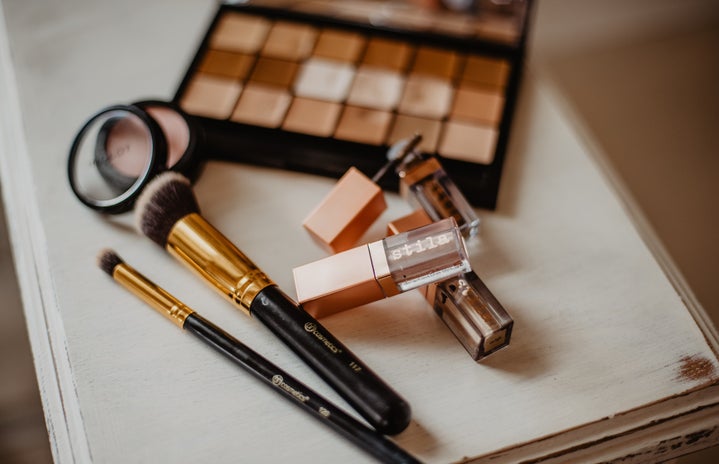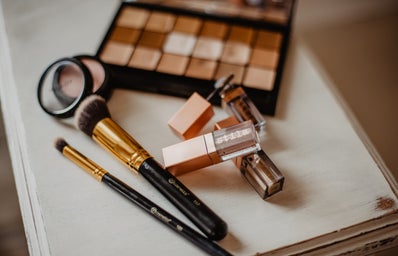The makeup industry is one that is always changing due to the demands of new trends. Similar to the fashion industry, social media and platforms advertising new makeup looks feed into an ever-fasting cycle of harmful and unsustainable microtrends. In addition to the sustainability issue, the makeup industry also poses an imminent danger to the health of its customers. The presence of asbestos in talc-based makeup products continues to have adverse effects on avid makeup users.
Talc is a mineral that is widely known for its soft, powdery consistency. When added to makeup, it creates the silky texture of products such as eyeshadow, foundation, blushes and creams. Talcum powder, which is talc found in the powder form, is also an important ingredient in baby powder, deodorants and paints in addition to a variety of cosmetic brands. While its appearance seems harmless on the surface, a microscopic look into the mineral reveals traces of asbestos. Composed of long and thin fibrous crystals, asbestos poses a great risk to the health of the exposed. Asbestos exposure increases the risk of asbestosis, mesothelioma and lung cancer, as well as cancers of the digestive system.
Poor regulations of cosmetic-grade talc in the makeup industry have continued to affect the lives of many. Peritoneal mesothelioma survivor, Kasie Coleman, is one of the many people impacted by this industry’s disregard for the health and safety of its clients. Peritoneal mesothelioma is a type of cancer caused by asbestos fiber ingestion that attacks a membrane lining abdominal cavities. Symptoms of this life-threatening diagnosis include continued abdominal pain, nausea and swelling of abdominal tissues. Due to the difficulty of mesothelioma to diagnose, her discovery of the disease took years. When speaking to asbestos representatives from The Mesothelioma Center, she urges women to “keep digging” if they feel a diagnosis is incomplete.
Asbestos contamination is present in many daily products as well. Companies that pride themselves on the safety and familiarity of their products are some of the greatest perpetrators.
Johnson and Johnson, famous over the past century for their baby powders and formulas, had knowledge of the harms of their products dating back 70 years. Since it was introduced to the market in the early 20th century, baby powder has been in popular demand. The presence of the deadly mineral in their product became known to Johnson and Johnson around 1960, and the company continued to sell its products in North America until 2020. The distribution of this potentially harmful product has remained active in areas outside of the United States, targeting unknowing populations.
This injustice extends far beyond just one company as several reputable makeup companies such as Avon, Dior, Clinique, L’Oreal and Lauder have been found guilty of using this deadly contaminant. Up until 2019, companies with target audiences of young consumers, such as Justice and Claire’s, distributed products containing the deadly contaminant. Makeup-using adults and children everywhere unknowingly run the risk of secondhand asbestos exposure in their common practices. Companies selling talc-based products continue to target cosmetics consumers all throughout the globe.
Despite this, there are many things we can do to protect ourselves from exposure to the dangerous mineral. Veer away from any talc-based products, as they can potentially contain asbestos. Opt for brands that use cornstarch rather than talcum powder. Cornstarch is a great substitute for a silky and soft powder. Use apps such as Skin Deep, Detox Me and Clearya to monitor the safety of your current and new products. Information that warns against the dangers of certain brands can also be found on websites such as Asbestos.com and Cosmetify. Take time to learn about the dangers of asbestos exposure and how small changes in your products can ultimately be life-saving.


